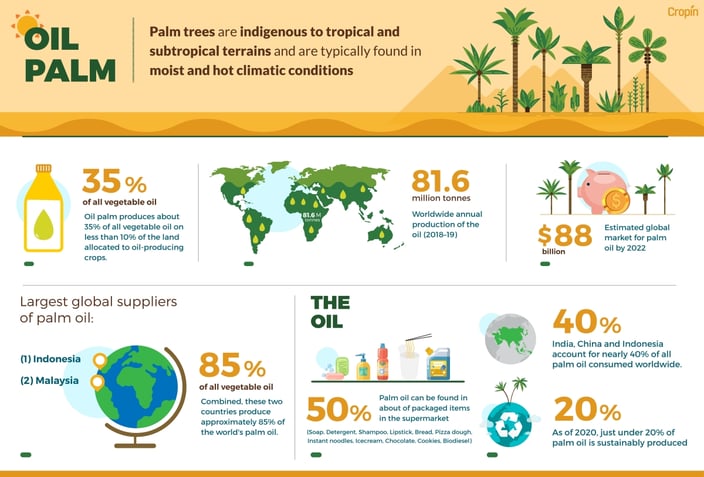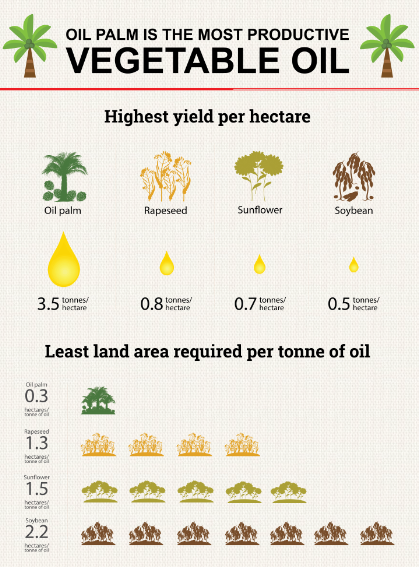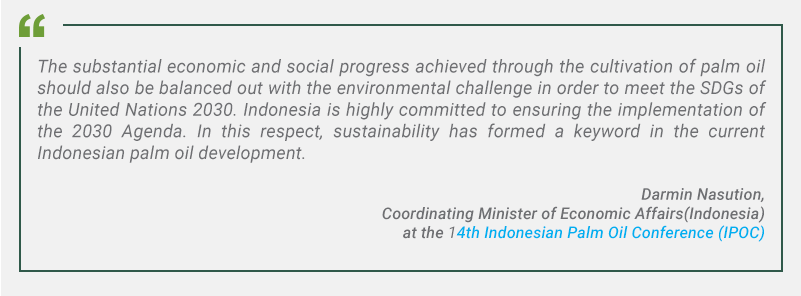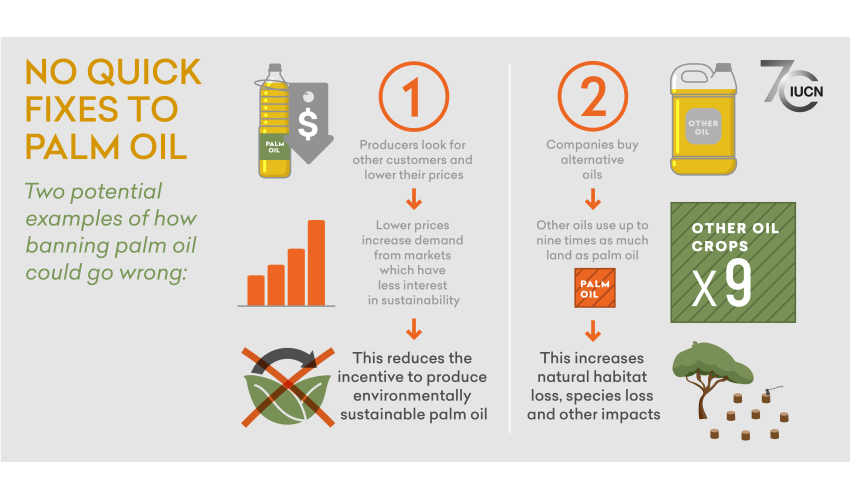Biofuels are witnessing a surge in production and consumption globally, as the fight against climate change is calling for renewable and clean fuels that do not contribute excessively to global greenhouse gas emissions. In Europe, numerous policies since the early 1990s have encouraged the production and use of renewable energy, particularly in the transport industry. Presently, the European continent is recognised as one of the largest biodiesel producers and consumers globally, with many countries including Germany, Italy, France, Austria, and Sweden contributing to the annual production of nearly 11 million tonnes of biodiesel. While the extensive rapeseed and sunflower cultivation across the continent contributes to the locally-produced biofuels, Europe also imports large volumes of palm oil from Indonesia and Malaysia, the top two producers of crude palm oil globally, for its consumption in the food and automobile sectors.
For the two Southeast Asian countries, the EU is one of the key markets for the export of crude palm oil. However, the European Parliament passed a resolution in 2017 to gradually reduce and eventually make palm-oil-based biofuel ineligible to count towards the Union’s renewable transport targets for the national governments. This verdict was based on numerous reports that pointed out palm oil cultivation’s negative impact on the environment. This would mean that the European Commission’s most recent policy, enacted in May 2019, aims to phase out biofuel feedstocks that are responsible for Indirect Land Use Change (ILUC) by 2030. In other words, this move will blacklist raw materials, including crude palm oil, if its share of expansion into forest areas with High Carbon Stock (HCS) has increased to more than 10% since 2008, along with an annual expansion of more than 1%. This policy, which falls within the framework of Europe’s new Renewable Energy Directive (RED II), thus categorises palm oil sourced from large plantations as high-risk and unsustainable. Moreover, individual member countries, such as France and Norway, have imposed additional restrictions on biofuels derived from palm. Although this policy applies to all countries that export palm oil and palm-based biodiesel to Europe, the restrictions will not impact palm oil’s use for human consumption.

Palm Oil Production In Southeast Asia
Palm trees are indigenous to tropical and subtropical terrains and are typically found in moist and hot climatic conditions. The oil derived from the fruit of these trees is edible and nutrient-rich. It is a key ingredient in nearly 50% of the packaged products found in supermarkets. Considering that this commodity is both versatile and affordable, it finds use in numerous food, cosmetic, personal care, and biodiesel industries worldwide. Today, among the 44 countries that produce palm oil, Indonesia and Malaysia contribute to approximately 85% of the global palm oil supply.
Since the boom in the production of palm for its oil began five decades ago, several advantages have been identified with it.
⦁ Firstly, being perennial and evergreen plants, palm trees facilitate year-round production.
⦁ Secondly, as crops, they require far fewer agrochemicals compared to other oilseed plants.
⦁ Thirdly, these trees offer the highest yield among all oilseed crops. The yield per acre of a palm tree is nearly five times as much as rapeseed, almost six times that of sunflower, and more than eight times that of soybeans.
⦁ Fourthly, palm trees can grow in soil conditions that do not sustain other crops.
⦁ Lastly, a combination of these properties, together with the right cultivation practices, bring down the cost of production well below that of other similar oilseed crops or animal fat.

Source: Golden Agri-Resources
Essentially, the cultivation of oil palm is much more efficient and favourable in comparison to other oil crops, particularly when the question of greenhouse gas savings rises. More importantly, palm oil cultivation also contributes to the United Nations’ Sustainable Development Goals (SDGs) by ensuring that millions of farmers have a dependable source of income to lift themselves out of poverty and hunger, have access to quality education and healthcare, and have a better standard of living on the whole.
However, despite these benefits, palm cultivation is associated predominantly with deforestation and its adverse impact on the environment and wildlife. A majority of the present-day plantations across Southeast Asia, Latin America, and Central and West Africa, were once natural rainforests or carbon-rich peatlands. In Indonesia, the land area dedicated to palm cultivation is currently at 12 million hectares, a number that is said to have tripled since 2000 after tropical forests were cleared and burned extensively. The conversion of carbon-rich peat soils to drainage-based agriculture, along with forest fires, results in substantial emissions of greenhouse gases to the atmosphere. The large-scale deforestation has also raised concerns among environmental and wildlife activists about the destruction caused to the habitats of several endangered plant and animal species.
The Way Forward For Sustainable Supply Chains
Indeed, it is only reasonable to question the sustainability of palm oil production when several countries are, in fact, building their efforts towards realising the SDGs. However, considering the world’s deep-rooted dependence on palm oil for production of processed food, cosmetic and personal care products, biofuels, and several other products, banning the importation of this commodity on the grounds of irresponsible production will only increase the strain on replacing this commonly-found ingredient in thousands of products with one that is as inexpensive and can be produced without much difficulty.
Governments and NGOs around the world are battling to implement regulations on how and where oil palm can be cultivated, taking into account its impact on biodiversity, local natural resources, and climate change. These regulations will also aid oil-producing companies to ensure a sustainable supply chain and to comply with the importing market’s demands for commodities that are low-risk in the context of carbon emissions.
To this extent, several national and international certification programs were introduced over the last two decades. In 2004, RSPO or the Roundtable on Sustainable Palm Oil (RSPO) was the first certification organisation that promoted the cultivation and use of ethical palm oil. This multi-stakeholder, non-profit organisation brings together investors, growers, retailers, and NGOs to develop and implement standards and criteria for sustainable practices by its members. Notable stakeholders in the organisation, including WWF and Unilever, strive to shift global consumers towards opting for certified sustainable palm oil over the conventional counterpart.
Apart from the RSPO, the Southeast Asian countries have taken stringent measures to ensure the responsible production of palm oil in their respective countries. Earlier in 2019, the Malaysian government capped the total area of palm plantations within the country at 6.5 million hectares and has banned any new conversion of permanent forests or peatland to oil palm plantations. Towards the end of 2019, the country also made it mandatory for plantation, independent smallholdings, and oil processing plants to be certified as per the relevant Malaysian Sustainable Palm Oil (MSPO) certification standards. The certification necessitates producers to adhere to specific environmental and labour rights standards. Presently, nearly 60% of the total plantations and 73% of all the mills in the country have received the MSPO certification, according to the Malaysian Palm Oil Certification Council (MPOCC). In 2011, Indonesia introduced the Indonesian Sustainable Palm Oil (ISPO) as the mandatory certification program for all palm oil producers in the country, to encourage sustainable palm oil management in the country.

Having said this, there are growing concerns with regard to the sustainable production of palm oil for biofuels. Although entities such as the Roundtable on Sustainable Biofuels (RSB) and the International Sustainable and Carbon Certification (ISCC), which the EU already requires, are seeking to certify biofuels, their efforts are still at a very nascent stage in the palm oil sector. The lack of transparency in the biofuel market makes the go-to option for companies that have not yet adopted sustainable production practices. Existing certification programs such as the RSPO do not extend to biofuels, making it difficult to track the entry of certified oil into this flourishing market.
Nevertheless, this is a challenge that needs to be addressed through the active collaboration of global organisations. Considering that this is a fight against climate change, private and public sectors around the world need to work together and collectively drive their efforts towards making oil palm as sustainable as possible. Several producers in Asian, African, and South American countries have already committed to eliminating deforestation and other unsustainable practices linked to the cultivation of oil palm, and private operators are also taking similar bold initiatives. Bearing in mind that palm oil has become an unavoidable ingredient in innumerable food and non-food products and that it continues to offer immense opportunities in diverse industries, it is nearly impossible to do away with it altogether. On the contrary, such a move would result in rather negative consequences.

Source: The International Union For Conservation of Nature (IUCN)

Implementing Digital Technologies To Strengthen Commitment to Sustainable Production
As mentioned previously, stakeholders in the palm oil sector need to collaborate to ensure that the production is as sustainable as it can be. Further, the supply chain needs to be made more transparent to simplify the certification process. Companies need to improve the visibility of processes right from the origin where farmers collect the fruits, to their movement to the mills, followed by the distribution of the oil to its consumers across industries.
Technological innovations have, in recent years, played an indispensable role in establishing traceability of the palm oil, from the plantation to the end consumer. Tracing the product back to the mill or plantation where the fruits were sourced from makes it possible to determine whether producers adhered to sustainable and ethical production practices. A combination of technologies such as GPS, satellite imaging, and the blockchain technology that are driven by a broad spectrum of big data permits actors the mapping of the supply chain directly to the mills and further even to the farmworkers.
Creating A Digital Footprint From Source
CropIn’s digital ecosystem is one such global platform that has a proven track record of achieving traceability to source for numerous crop value chains. CropIn enables producers to geo-tag the exact location and the acreage of the cultivated land with its farm data management solution, SmartFarm®. This mapping initiates the chain traceability for the end product, and each activity that follows can be recorded against the corresponding farm or plantation worker, all the way till the oil is packaged for export or sale. Post-harvest activities, including sorting and inventory management, and order processing and tagging, can be efficiently managed using SmartWare®, CropIn’s packhouse solution for traceability and compliance.
Training and Advisory For Sustainable Practices
SmartFarm® is also an effective solution for information dissemination to plantation workers. The organisation’s management can configure the activity schedule and the package of practices (POP) for the crop in the application. This can be used by the extension staff to guide the farmers in following the right practices for high-quality yield. The digital record of the completed activities will assure the certifying bodies that only the recommended, sustainable practices were followed during the production of the palm oil. Besides, the agronomists can provide extensive training for the farmers and monitor its result throughout the production cycle. The training helps farmers to understand the need to adopt practices that do not harm the environment.
Monitoring Land Usage
CropIn’s AI/ML-powered engine SmartRisk® leverages satellite imaging and proprietary algorithms to map land usage and categorise them according to the land use classification system developed by the United State Geological Survey (USGS). This classification based on remote monitoring of land usage will enable stakeholders to compare the current and past land cover records to determine a change in land usage if any. SmartRisk® can also be utilised by palm oil producers to identify abandoned or unused tracts of land for cultivation purposes, thus preventing the need to clear forested areas or peatlands.
Compliance and Certification
The digital record of production activities in CropIn’s platform, supported by customised Farm-Level Survey Forms, streamlines the certification process for palm oil companies. Oil producers can use SmartFarm® to regulate and track vital parameters that impact quality, including pesticide residue levels, crop quality, and alerts raised by field staff at the farm level and resolved by remotely-located agronomists. Authorised users can then extract the data this Form in the form of a structured report to submit for quality certification purposes. These users can also prepare customised reports by extracting relevant data from the record of events and activities in the database. In addition to the above, plantation managers can also record personal details of the farmer to establish that no child labourers were employed by the company.
CropIn’s multi-stakeholder platform promotes the collaboration between palm oil producers and public and private sector organisations to strengthen the global initiative towards sustainable agriculture. CropIn’s ecosystem facilitates the flow of information and the mutual sharing of relevant agri-data to monitor and optimise sustainable and ethical practices.
To discover how CropIn can specifically help your initiatives, talk to our Solutions Expert Today!






